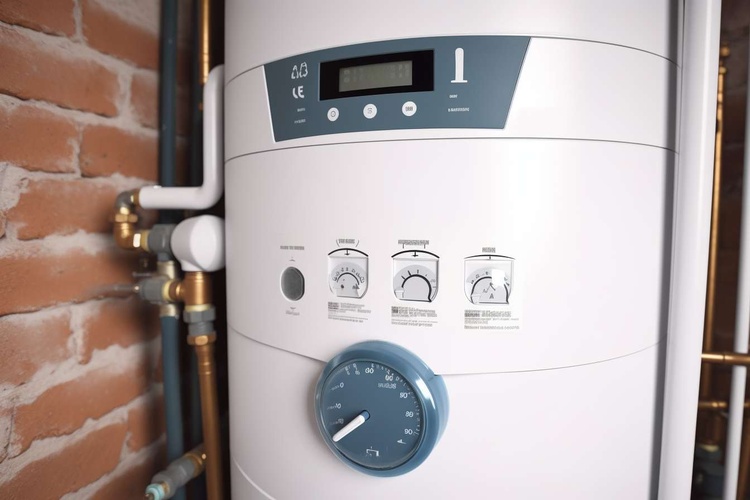What to Know About Government-Backed Schemes Boilers for Over 70s
Government-backed boiler schemes offer vital support for elderly individuals struggling with heating costs. These initiatives aim to improve energy efficiency while reducing financial burden on pensioners. Understanding eligibility requirements and application processes can help those over 70 access free or subsidized heating solutions during colder months.

For many elderly individuals in the UK, maintaining a reliable and efficient heating system is not just a matter of comfort but a necessity for health and wellbeing. Government-backed boiler schemes specifically designed for those over 70 years of age aim to address this need by providing financial assistance for boiler replacements or upgrades. These initiatives form part of broader energy efficiency programs designed to reduce fuel poverty, decrease carbon emissions, and ensure vulnerable populations can maintain warm homes during colder months.
Understanding the Purpose Behind Boiler Grants
Boiler grants were established to tackle multiple societal challenges simultaneously. First, they address fuel poverty among vulnerable populations, particularly the elderly who often live on fixed incomes and face difficult choices between heating and other essentials. Second, these programs contribute to environmental goals by replacing inefficient heating systems with modern, energy-efficient alternatives that reduce carbon emissions. The government recognizes that older individuals may lack the financial resources to invest in new heating systems, despite potentially benefiting the most from reduced energy bills and improved heating reliability.
Who May Be Eligible for Boiler Support Programs?
Eligibility for boiler support schemes typically centers around several key criteria. Age is a primary factor, with most programs specifically targeting individuals aged 70 and above. However, age alone isn’t always sufficient to qualify. Income thresholds often apply, with preference given to those receiving Pension Credit or other means-tested benefits. Housing situation matters too – homeowners and private tenants (with landlord permission) are typically eligible, while those in social housing may have different pathways for assistance. Some schemes also consider the condition of the existing boiler, prioritizing replacements for systems that are inefficient, faulty, or beyond economical repair.
Free Boilers for Over 70s: How the Process Works
The journey toward obtaining a free boiler through government schemes involves several steps. Initially, applicants must complete an eligibility assessment, providing details about their household income, benefits received, and current heating system. If deemed eligible, an approved installer will conduct a home survey to assess the property’s needs and determine the most appropriate heating solution. The installation process typically follows within weeks, with minimal disruption to the household. While marketed as “free,” it’s important to note that some schemes may require partial contributions depending on the property’s specific requirements or if additional work is needed beyond the standard installation.
Boiler Grants Eligibility: Important Documentation
Successful applications for boiler grants require proper documentation. Applicants should prepare proof of age (passport, driving license, or birth certificate), evidence of homeownership or tenancy agreement, proof of income and benefits (including Pension Credit statements), and utility bills showing the address. Some schemes may also request information about the existing boiler, such as age, model, and service history. Having this documentation ready when applying can significantly speed up the process and increase the chances of approval. Many schemes offer assistance with paperwork completion for those who find the process challenging.
Alternative Support Options for Heating Assistance
Beyond specific boiler replacement grants, elderly individuals can access various other forms of heating support. The Winter Fuel Payment provides annual tax-free payments to help with heating costs for those born before certain dates. The Warm Home Discount Scheme offers electricity bill rebates for eligible pensioners. For those who don’t qualify for free boiler replacements, partial grants or low-interest loans might be available through programs like the Energy Company Obligation (ECO) scheme. Additionally, some local authorities and charities operate their own initiatives to supplement national programs, providing emergency heating repairs or temporary heating solutions.
Government Boiler Scheme Providers and Costs
Various providers administer government-backed boiler schemes across the UK, each with different offerings and approaches. Understanding the options can help applicants choose the most appropriate program for their circumstances.
| Scheme Provider | Coverage Area | Eligibility Focus | Average Value |
|---|---|---|---|
| ECO4 | Nationwide | Low income, vulnerable | £2,500-£4,000 |
| Warm Home Scotland | Scotland | Age 70+, benefits | Up to £5,000 |
| Nest Scheme | Wales | Pensioners, inefficient systems | £3,000-£5,000 |
| Affordable Warmth | Northern Ireland | Age-based, low income | £1,500-£3,500 |
| Local Authority Schemes | Varies by council | Local criteria, often age-focused | £1,000-£3,000 |
Prices, rates, or cost estimates mentioned in this article are based on the latest available information but may change over time. Independent research is advised before making financial decisions.
Application Timeframes and Planning Ahead
Timing is crucial when applying for boiler grants, as funding can be limited and seasonal demand fluctuates. Most schemes operate on annual funding cycles, with new allocations typically released in spring. Application processing generally takes 2-4 weeks, followed by a home assessment period of 1-2 weeks. The installation itself usually requires 1-2 days once approved. To avoid emergency situations, experts recommend applying during warmer months when demand is lower and waiting times shorter. This proactive approach ensures that new systems are in place before winter arrives, preventing potential heating emergencies during cold weather periods when installation teams are at their busiest.




